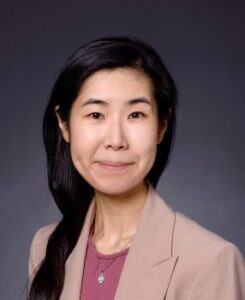 We’re proud to celebrate Dr. Suzann Duan, an Assistant Professor in the Department of Pharmaceutical Sciences at UC Irvine, as the recipient of the 2025 Basic/Translational Science Investigator (BTSI) Award. This honor is made possible through our partnership with NANETS and supported by NETRF. Her proposal, “Targeting the Epigenetic Landscape of GEP-NETs through Menin-MLL Inhibition,” offers great potential for the neuroendocrine tumor community.
We’re proud to celebrate Dr. Suzann Duan, an Assistant Professor in the Department of Pharmaceutical Sciences at UC Irvine, as the recipient of the 2025 Basic/Translational Science Investigator (BTSI) Award. This honor is made possible through our partnership with NANETS and supported by NETRF. Her proposal, “Targeting the Epigenetic Landscape of GEP-NETs through Menin-MLL Inhibition,” offers great potential for the neuroendocrine tumor community.
Dr. Duan brings deep expertise in the origins and epigenetic rewiring of gastroenteropancreatic neuroendocrine tumors (GEP-NETs), drawing on her postdoctoral work at the University of Arizona Comprehensive Cancer Center. There, she explored cells-of-origin and pivotal signaling pathways that drive these enigmatic tumors.
At UC Irvine, Dr. Duan leads the Duan Lab, where her team studies how specific changes in gene regulation can cause healthy cells to behave differently and sometimes develop into tumors. They use advanced tools, like specialized research mice, miniature 3-D tumor models grown in the lab, and cutting-edge gene analysis, to understand how nerve-supporting cells in the gut might transform into cancer cells. The goal is to discover new methods for early tumor detection and to develop improved treatments.
With support from the BTSI grant, two years of funding totaling $100,000, Dr. Duan will rigorously test menin-MLL inhibitors in preclinical GEP-NET models, examining how they alter the tumor’s epigenetic landscape by modulating menin levels. This translational research addresses a critical knowledge gap and could lay the foundation for adjuvant therapies in GEP-NETs.
NETRF is honored to invest in early-career scientists like Dr. Duan whose pioneering approaches promise to transform the NET field. NETRF has funded the annual NANETS BTSI Award since 2016. Dr. Duan’s work exemplifies the impact that bold, focused research can achieve when supported by dedicated partners. We look forward to seeing her discoveries advance toward improved diagnostics and treatments for patients with limited options.
More Research News
Welcoming Brilliant Minds: NETRF’s Board of Scientific Advisors Grows Stronger
